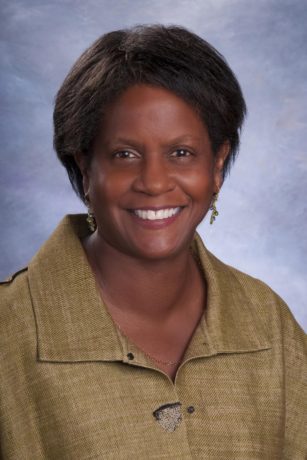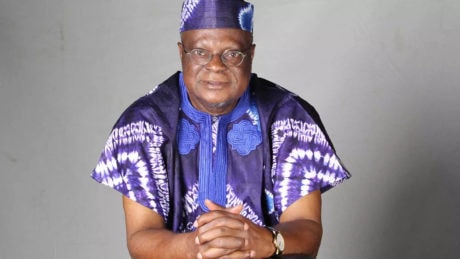There was revolution in the air. Decolonization of Africa was taking shape. The world was on fire. And The Kennedy Center’s World Stages will be providing audiences a taste of those times.

“The World Stages series provides to our audiences the opportunity to experience the work of visionary artists at the forefront of international discourse,” Alicia B. Adams said in a recent conversation.
Adams is likely unknown to many. She is the behind-the-scenes cultivator and curator for the annual Kennedy Center World Stages festival. Her title is Vice President of International Programming and Dance at the John F. Kennedy Center for the Performing Arts. She has been with The Kennedy Center since 1992.
With DC a world-class region with many embassies and diverse demographics, it is no accident that The Kennedy Center has developed the World Stages series. Since its first appearance in 2014, the World Stages series has presented works from more than 25 countries. The series regularly features “incredible directors, authors, and artists,” said Adams. And they are from countries and cultures not often presented on DC-area mainstages.
This year’s World Stage will be presenting a literary mini-series entitled Boundless: Africa. “It is exciting to be part of bringing African writers to public attention. They are fantastic,” noted Adams. “There is no single place, nor image, nor sound, nor thought that represents the multifarious universe known as Africa. To experience and appreciate Africa is to discover the vibrant tapestry of extraordinary diverse cultures spread across the continent.”
With programs combining performances, panel discussions, and readings, Boundless: Africa will spotlight playwrights, poets, and writers of African heritage living in Africa and the Diaspora, including the United States.
Why “boundless” in the World Stages title? For many years Africa has been defined by boundaries — externally imposed boundaries between countries, but also boundaries between rich and poor, black and white, north and south, the continent and the diaspora. “During this century, however, many of these boundaries have begun to erode. New conversations and connections are happening across these boundaries every day, and a pioneering group of writers and artists is leading the charge,” said Adams.
“This is an unprecedented gathering of African writers coming from Nigeria, the UK, and all across the Diaspora; writers whose works reflect their experiences with boundaries of all kinds,” said Adams. “Having the opportunity to dialogue with these writers, and hear them talk about their work can inspire us and help lead us in new directions.”

A singular theatrical event for Boundless: Africa is a reading of Not All Canoes Sail Back Home: Maya, Maryse, and Efua in Nkrumah’s Ghana written by Nigerian playwright Femi Osofisan. After the reading will be a panel discussion moderated by DC playwright Tom Minter. Expected panelists are Chuck Mike, who is directing the staged reading, and Carlyle Brown.
The play was inspired by historic events of the late 1950s/early 1960s. Decolonization of the African continent from European rule was taking hold, and new African leaders invited African Americans to visit the continent and help with nation-building.
One of those leaders was Kwame Nkrumah, Prime Minister and then President of the newly independent Ghana; once a colony of Great Britain known as the Gold Coast. Nkrumah (1912-1972) was an influential leader not only in Ghana but worldwide at the time.
Osofisan’s play Not All Canoes Sail Back Home: Maya, Maryse, and Efua in Nkrumah’s Ghana imagines the interactions between invited visitors and their Ghanaian hosts including their impact on the African nations’ futures. “This play is a fiction born out of imagined scenarios between these three great black female writers, brought together at this most momentous period of Ghana’s history, when one daring black man tried to change their racial destiny from that of perennial victims,” said Adams.
If you wonder who the three first names refer to, they are three women, Maya Angelou from North America, Maryse Condé from Guadeloupe, and a Ghanaian, Efua Sutherland. In 1960 they were in their early years as writers and thinkers. Now they are literary giants. The play conjures those times and ponders what part did their Ghanaian sojourn play in their maturation—literary, political, and otherwise?
So with that, here is more of my conversation with Alicia Adams about Boundless: Africa.
David Siegel: Why did you select Not All Canoes Sail Back Home: Maya, Maryse, and Efua in Nkrumah’s Ghana?
Alicia B. Adams: One of our collaborators for Boundless: Africa is the Camargo Foundation, because of the work they are doing in their Cultural Diaspora residency program. The goal of the residency program is to bring together mid-career and established African and African-American theater artists, engaging them in debates about identity and authenticity and exploring the ways in which international boundaries shape the African experience.
What can audiences expect at the staged reading and the panel discussion?
Both the playwright (Femi Osofisan) and the director (Chuck Mike) will be with us to present and discuss the play, along with Carlyle Brown who presented the play as part of the Afro-Atlantic Playwright Festival in partnership with the Camargo Foundation in Minneapolis this past summer.
This session — along with the others being offered — will provide a unique and immersive experience, not only for these 14 writers all of African heritage, but for the local community of writers, African-Americans, and others who are dealing with the issues reflected in this work and the written works of the writers with us.
Boundless: Africa – Not All Canoes Sail Back Home: Maya, Maryse, and Efua in Nkrumah’s Ghana plays February 4, 2020, at The REACH at The Kennedy Center, 2700 F St NW, Washington, DC. Purchase tickets online.
Note: Boundless: Africa events will be taking place on February 4 and 5 at The Kennedy Center and at George Mason University. Full event details can be found here. The Kennedy Center is “collaborating with George Mason University because they have the Alan Cheuse International Writers Center that hosts many well-known writers as a means of creating an international dialogue, exchange, and understanding among peoples. Because of their programming, this seemed like an excellent match given the writers we are hosting. We often reach out to area universities to provide opportunities for students to participate in the events we offer with international artists and companies,” added Adams.




